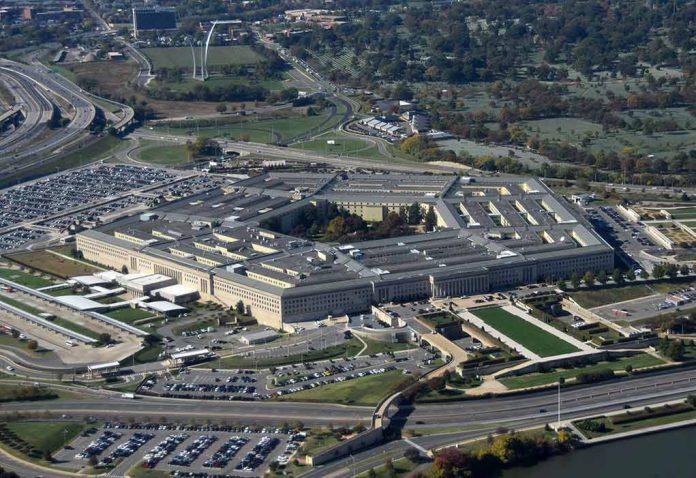
The Pentagon’s ongoing failure to pass its audits sparks urgent calls for greater accountability amidst rising concerns over its massive financial operations.
At a Glance
- The Pentagon has failed its seventh consecutive audit, never having passed since audits became a requirement.
- Insufficient information provided to auditors continues to hinder a complete financial assessment.
- The Pentagon has $3.8 trillion in assets and $4 trillion in liabilities.
- Bipartisan concerns demand greater financial transparency and oversight.
Lack of Progress in Pentagon Audits
The Pentagon failed its financial audit for the seventh straight year, raising eyebrows across party lines. Since audits began, the Department of Defense has never managed to pass. Multiple factors contribute, including the vast scope of the Pentagon’s financial operations and the $824 billion budget it maneuvers annually. The audit found that insufficient information was made available to properly evaluate their financial health.
Critics point to the lack of accountability at a time when citizens face scrutiny over small discrepancies in their own finances. Rand Paul, among others, has been vocal in his call for increased financial oversight. He stated, “It’s time to independently #AuditthePentagon. No institution is above scrutiny, especially the DoD w/ the largest budget of ANY fed agency.” The Department of Defense, one of the largest governmental financial entities, holds assets amounting to $3.8 trillion and liabilities near $4 trillion, intensifying the challenge.
Pentagon fails 7th audit in a row, eyes passing grade by 2028 https://t.co/fvnShMjwij
— Breaking Defense (@BreakingDefense) November 16, 2024
Calls for Greater Accountability
Concerns over the Pentagon’s financial management have become a bipartisan issue. The complexity of managing such extensive operations without comprehensive audits demands a more stringent approach. Congressman Tim Burchett suggested that leaking information about Pentagon finances could pose real risks. He remarked, “Pentagon that has billions… that they hide, we don’t ask for any accounting of.”
Congressman Tim Burchett says if anyone were to leak where the money goes when The Pentagon fails their audits, they’d be murdered. “Pentagon that has billions of dollars that they hide, we don’t ask for any accounting of. They never pass an audit in the history of audits. I’ve often said the only way we’re really going to get to the bottom of this is somebody’s going to walk out of one of these labs with this information and puts it out on the internet before they commit suicide by shooting themselves in the back of the head five times,’” said Congressman Tim Burchett.
The Department of Defense insists it is working toward an unmodified audit opinion by 2028. A statement from Comptroller Michael McCord indicated a change in the department’s understanding of its financial landscape: “Momentum is on our side, and throughout the department, there is strong commitment—and belief—in our ability to achieve an unmodified audit opinion.” Despite this optimism, consistent failures raise questions about continued inefficiencies.
Historical Concerns and Future Implications
The lack of audit success at the Pentagon echoes concerns dating back decades. A historical reference is often made to the $2.3 trillion that went missing, announced by Donald Rumsfeld prior to 9/11. This context amplifies current worries about fiscal mismanagement. With increasing geopolitical tensions, there are speculations regarding the impacts on gold prices and considerations for wealth protection, tying into broader economic factors. As calls for transparency intensify, the path forward remains critical for maintaining public trust and robust defense efficiency.
“Despite the disclaimer of opinion, which was expected, the department has turned a corner in its understanding of the depth and breadth of its challenges,” Comptroller Michael McCord said in a statement. “Momentum is on our side, and throughout the department there is strong commitment — and belief — in our ability to achieve an unmodified audit opinion” by fiscal 2028.”
To effectively address these issues, ongoing bipartisan pressure will be required, as will the pursuit of comprehensive, independent audits. Scrutiny of the Pentagon’s financial practices must reflect the same rigorous standards expected of American citizens, ensuring integrity and accountability for one of the nation’s most critical departments.









